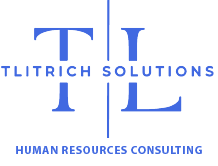Meetings are the lifeblood of collaboration and decision-making in the workplace, yet all too often, they can devolve into unproductive time sinks. To harness the power of meetings and maximize their impact, it’s essential to cultivate a culture of effectiveness and efficiency. Here are some indispensable tips for having effective meetings:
1. Define Clear Objectives: Before scheduling a meeting, articulate the purpose and desired outcomes. What issues need to be addressed? What decisions need to be made? Setting clear objectives ensures that everyone understands the purpose of the meeting and can contribute meaningfully to the discussion.
2. Keep It Lean: Respect everyone’s time by keeping meetings as concise and focused as possible. Avoid the temptation to cram too many agenda items into a single meeting. Instead, prioritize the most pressing topics and allocate sufficient time for discussion and decision-making.
3. Send an Agenda in Advance: Provide attendees with an agenda outlining the topics to be covered, along with any relevant background information or materials. This allows participants to come prepared, prioritize their contributions, and stay on track during the meeting.
4. Invite the Right People: Only invite individuals whose presence is essential to achieving the meeting objectives. This not only keeps meetings more focused but also ensures that everyone in attendance can actively contribute to the discussion and decision-making process.
5. Foster Engagement: Encourage active participation from all attendees by creating a welcoming and inclusive environment. Avoid dominating the conversation and give everyone an opportunity to voice their thoughts and ideas. Consider using techniques like round-robin discussions or breakout groups to facilitate participation.
6. Set Ground Rules: Establishing ground rules for conduct can help maintain order and civility during meetings. This may include guidelines for speaking time, cell phone usage, and respectful communication. Enforce these rules consistently to ensure that meetings remain productive and respectful.
7. Stay on Schedule: Respect the allocated time for the meeting and strive to start and end on time. This demonstrates a commitment to efficiency and professionalism while helping attendees manage their schedules effectively.
8. Assign Action Items and Follow-Up: Clearly document any decisions, action items, and next steps arising from the meeting. Assign responsibilities to individuals or teams and set deadlines for completion. Follow up on progress regularly to ensure accountability and momentum.
9. Embrace Technology: Leverage technology to enhance the effectiveness of your meetings. Use collaborative tools for document sharing, virtual whiteboards for brainstorming, and video conferencing platforms for remote participants. Experiment with different tools and formats to find what works best for your team.
10. Solicit Feedback: After the meeting, solicit feedback from participants to identify areas for improvement and refine your approach for future meetings. Encourage candid input on what worked well, what could be done differently, and any suggestions for enhancing effectiveness.
By implementing these tips, you can transform your meetings from time-consuming obligations into valuable opportunities for collaboration, decision-making, and progress. With a commitment to clarity, focus, and engagement, you can harness the full potential of your team and drive success in the workplace.
